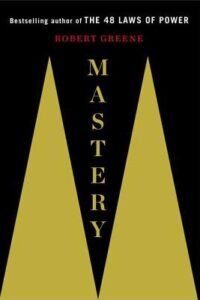Every human activity, endeavor, or career path involves the mastering of skills. – Robert Greene in “Mastery”

In his book Mastery, Robert Greene elaborates on the Apprenticeship phase involving three essential steps in the apprenticeship, each one overlapping the other. The three steps are: Deep Observation (The Passive Mode), Skills Acquisition (The Practice Mode), and Experimentation (The Active Mode). He states that within Skills Acquisition (The Practice Mode), in acquiring any kind of skill, there exists a natural learning process that coincides with the functioning of our brains known as tacit knowledge – a feeling for what you are doing that is hard to put into words but easy to demonstrate in action. He elaborates on how the apprenticeship system came about in the Middle Ages. “As business expanded in the Middle Ages, Masters of various craft needed more help and also wanted to build up skills in their workers. Thus the apprenticeship system developed in which young people from approximately the ages of twelve to seventeen would enter work in a shop, signing a contract that would commit them for the term of seven years. At the end of seven years, apprentices would have to pass a master test, or produce a master work, to prove their level of skill. Once the apprentices’ pass, they were elevated to the rank of journeymen and could travel wherever there was work, practicing the craft. “
Apprentice comes from the Latin word prehendere, meaning to grasp with the hand. “Apprentices learned the trade by watching Masters and imitating them very closely and learning through a lot of endless repetition and hands-on work with very little verbal instruction. Since resources such as textiles, wood, and metals were expensive and could not be wasted on practice runs, apprentices would spend most of their time working directly on those materials used for the final product. If the time was summed up for which the apprentices ended up working directly on materials in those years, it would amount to more than 10,000 hours, enough to establish exceptional skill level at a craft.”
Text derived from Mastery by Robert Greene.
Image source: Goodreads

